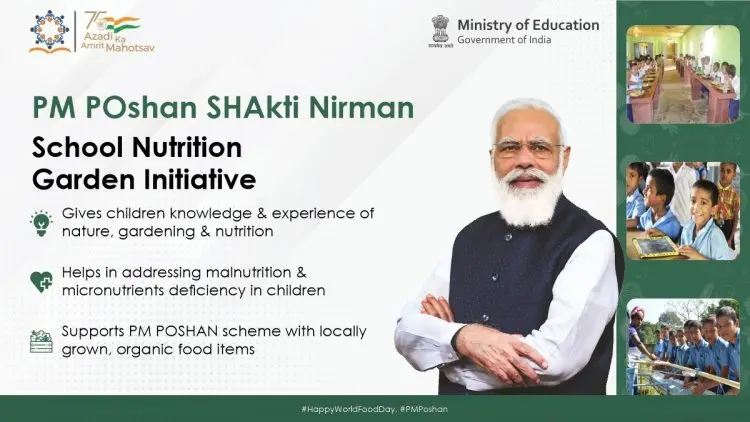PM POSHAN Brings Hope to Millions: One Meal, Many Transformations
PM POSHAN is transforming lives by providing mid-day meals to school children across India. Learn how this initiative tackles hunger, boosts education, and promotes social equality. PM POSHAN is more than just a government scheme it’s a ray of hope for millions of children across India. Launched to tackle hunger, malnutrition, and school dropouts, the initiative provides hot, nutritious mid-day meals to school-going children. While feeding children might sound simple, the impact of this initiative is massive and far-reaching, touching the core of India’s future its youth.
Childhood hunger is a silent crisis. It robs children of their right to a healthy life, education, and dignity. Many children from low-income families attend school with empty stomachs. This affects their ability to concentrate, perform academically, and stay in school. Malnutrition doesn’t just impact health it affects cognitive development, social behavior, and the long-term earning potential of a child.
How PM POSHAN Is Uplifting India’s Most Vulnerable Children
PM POSHAN is India’s updated version of the Mid-Day Meal Scheme. It focuses not only on filling empty stomachs but also on restoring dignity, reducing dropouts, and promoting social equity. By providing nutritious meals at school, the program ensures that even the most underprivileged children have at least one solid meal a day. This small but powerful step encourages regular school attendance and supports the overall growth of children.
A unique aspect of the PM POSHAN program is how it breaks deep-rooted social barriers. Children from different castes, communities, and religions sit together and eat, fostering equality from a young age. In rural areas where caste divisions are rigid, this communal eating helps bridge gaps and promote harmony. For girls especially, who often face food discrimination at home due to patriarchal norms, this is a lifeline. Many girls are fed last or not at all in families where food is scarce. By receiving balanced meals at school, their health and chances of a better future improve.

But the battle is far from over. India still ranks poorly on the Global Hunger Index and other global nutrition rankings. Malnutrition, especially in states like Bihar, Madhya Pradesh, and Uttar Pradesh, remains a huge concern. Implementation challenges—like hygiene issues, irregular supply, corruption, and lack of accountability—have affected the scheme’s success in the past.
PM POSHAN’s Impact on Education, Nutrition, and Social Justice
This is why the PM POSHAN initiative now includes a digital monitoring system. The government has introduced real-time data collection through the Automated Reporting and Management System to ensure transparency and timely interventions. However, more efforts are needed to truly modernize the system.
Experts suggest integrating Artificial Intelligence (AI) and Machine Learning (ML) into the scheme. These technologies can help identify high-risk zones, track malnutrition trends, and predict food shortages or supply gaps. AI tools can alert authorities to vulnerable communities even before hunger escalates into a crisis, enabling faster, more efficient responses.
Nutrition is deeply linked with education and economic upliftment. A healthy, well-fed child learns better, grows stronger, and eventually contributes more to the economy. Parents, especially those from poor backgrounds, are more willing to send children to school if it means they’ll be fed. This reduces child labor and ensures children get the education they deserve. Education, in turn, empowers children to break the cycle of poverty, gain meaningful employment, and improve their family’s living conditions.
India has a long history of school feeding programs, dating back to the early 20th century. But the scale and reach of PM POSHAN are unprecedented. With continued innovation, improved infrastructure, and greater community involvement, this initiative can truly become the backbone of India’s fight against hunger and malnutrition.
Also Read: Telangana Records Surprising Rise in Calorie Intake Despite Fewer Meals 2023-24
PM POSHAN is not just about food. It’s about justice, education, and opportunity. With stronger implementation and the use of technology, it can help India move closer to a hunger-free, healthier future for every child.

